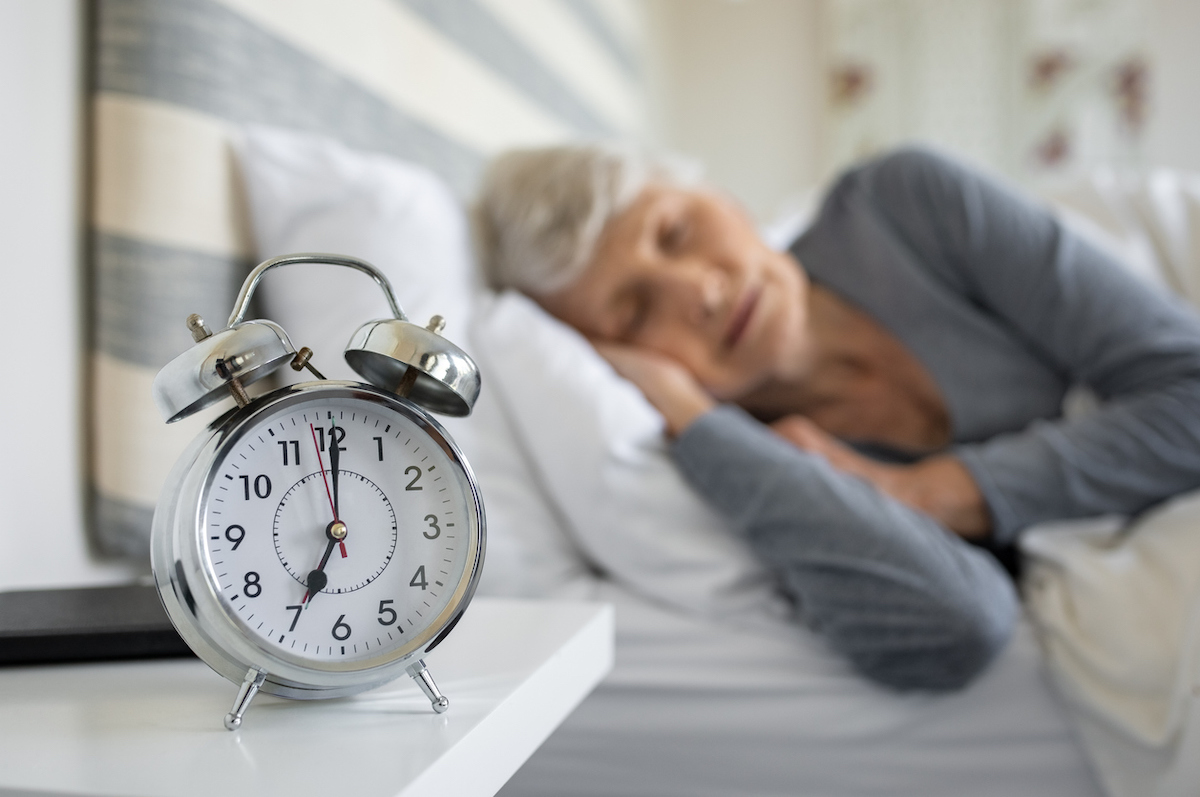RELATED: If You Can’t Smell This, It Could Be an Early Sign of Dementia, Study Says. Tossing and turning in the middle of the night might not just be about trying to get comfortable. A 2018 study published in the American Academy of Neurology’s journal Neurology assembled 101 participants whose average age was 63. All of them were considered at-risk for Alzheimer’s disease due to being carriers of a specific gene that makes them more likely to develop symptoms of the disease. Participants then filled out surveys detailing their sleeping habits and any sleeping troubles they regularly experienced, as well as providing samples of spinal fluid to check for biological markers of the neurological condition known as amyloid plaque and tau. Results found that those who reported being restless at night, had bad sleep quality, and were tired during the day had higher amounts of the Alzheimer’s disease biomarkers in their system. RELATED: For more up-to-date information, sign up for our daily newsletter. ae0fcc31ae342fd3a1346ebb1f342fcb The researchers pointed out that not being able to nail down a good night’s sleep didn’t preclude participants from having the markers related to Alzheimer’s in their spinal fluid. But even when the study results were adjusted to account for body mass index, medication use, depression, and education, the findings remained unchanged. The researchers explained that their results could potentially mean a few different things. “Previous evidence has shown that sleep may influence the development or progression of Alzheimer’s disease in various ways,” Barbara B. Bendlin, PhD, the study’s author from the University of Wisconsin–Madison, said in a statement. “For example, disrupted sleep or lack of sleep may lead to amyloid plaque buildup because the brain’s clearance system kicks into action during sleep. Our study looked not only for amyloid but for other biological markers in the spinal fluid as well.” Ultimately, the researchers concluded that more information was needed to determine the true cause and effect between sleeping and Alzheimer’s. “It’s still unclear if sleep may affect the development of the disease or if the disease affects the quality of sleep. More research is needed to further define the relationship between sleep and these biomarkers,” Bendlin said in the statement. “There are already many effective ways to improve sleep. It may be possible that early intervention for people at risk of Alzheimer’s disease may prevent or delay the onset of the disease.” RELATED: 50 Tips for Sleeping Better Tonight, According to Experts. Other recent research has found links between sleep and cognitive health. A large April study from the French health research institute Inserm, published in the scientific journal Nature Communications, found that sleeping six hours a night or less a night was linked to an increased risk of dementia in people between 50 and 60 years old. The researchers analyzed data from a long-term study by University College London, which followed 7,959 British individuals between 1985 and 2016. They then compared the health of adults who didn’t get enough sleep to people who slept the recommended seven hours. The researchers found a 30 percent increase in dementia risk in those who consistently clocked in a maximum of six hours a night in their 50s and 60s. “Many of us have experienced a bad night’s sleep and probably know that it can have an impact on our memory and thinking in the short term, but an intriguing question is whether long-term sleep patterns can affect our risk of dementia,” Sara Imarisio, PhD, head of research at Alzheimer’s Research U.K., said in a statement in response to the April study. “We know that the diseases that cause dementia start up to two decades before symptoms like memory loss start to show, so midlife is a crucial time for research into risk factors.” RELATED: 40 Habits to Reduce Your Risk of Dementia After 40.



